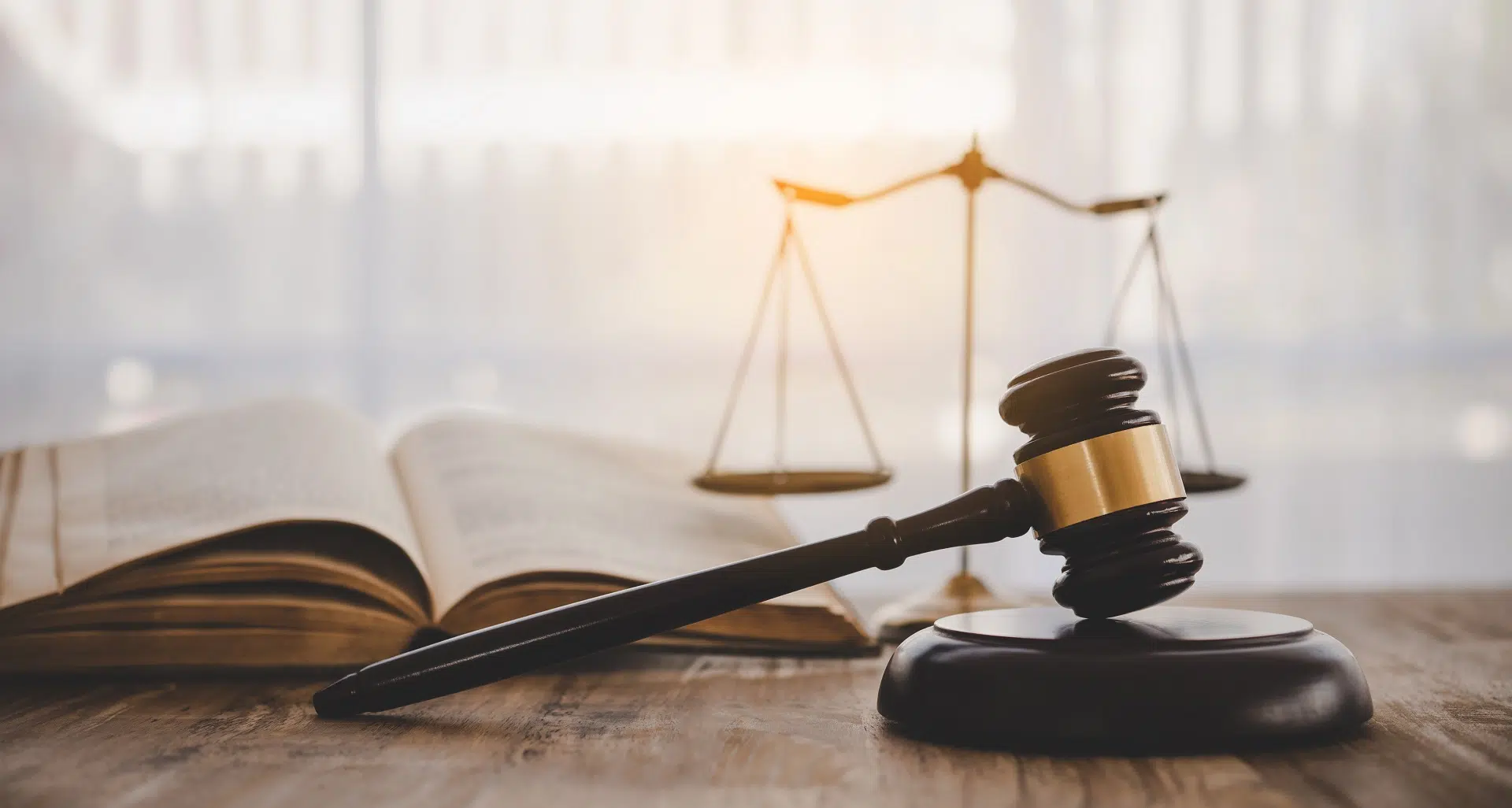Civil Protection Orders vs. No-Contact Orders in Washington State: What’s the Difference?
Romantic relationships tend to be complex, especially when a couple has been together for several years. Disagreements are natural and inevitable for any marriage or partnership, but the couple usually works through their differences after voicing their concerns, listening to one another, and committing to move forward together. Sometimes, the disagreement escalates so much that the couple decides that they should end the relationship and go their separate ways. Although many of these arguments may become headed at times, there are circumstances in which the situation can turn physically violent. In recent decades, several victim advocacy groups have called attention to the prevalence of domestic violence across the country. According to the National Coalition Against Domestic Violence (NCADV), one in three women and one in four men have experienced some form of physical violence by an intimate partner (i.e., slapping, shoving, pushing, etc.). Moreover, one in four women and one in seven men have been victims of severe physical violence by an intimate partner in their lifetime (i.e., beating, burning, strangling). There are several reasons why an abused spouse or partner may stay in the relationship even though they worry about their physical safety. Perhaps the most significant factor preventing them from leaving their abusive partner is their fear of retaliation or escalated acts of violence as they pursue a divorce or legal separation. Some research supports this fear, as it found that the risk of crime victimization for partner assault reached its peak between six and twelve months before divorce—the time in which people typically file for divorce. The process of leaving an abusive marriage can be considerably risky and daunting for survivors of domestic violence.
However, states like Washington have implemented several legal protections to help survivors of domestic abuse leave unhealthy marriages and partnerships. Those unfamiliar with the terms civil protection order and no-contact order may confuse the two, but they are different enough that it’s worth taking some time to understand their distinct purposes. As you start exploring your options for pursuing a divorce or legal separation in the Seattle area, consider enlisting the guidance of an experienced and caring family law attorney who can support you at every step of the legal process. Let’s take a look at the distinctions between civil protection orders and no-contact orders in Washington State and how these tools can be used to keep you safe during this vulnerable transition to a brighter, independent life.
Civil and Criminal Court Systems in Washington State
The primary difference between a civil protection order and a no-contact order is that they each apply to a different court system. Civil protection orders can be secured independently of a criminal case, meaning that your abuser does not have to face any criminal charges in order for you to seek this type of legal protection. For example, if you are seeking a divorce from a violent, manipulative, or abusive spouse, you have the right to petition the civil court for a civil protection order that prevents the abuser from engaging in certain behaviors (such as contacting you in any way, showing up at your home or place of work, etc.). The civil court will assess the details of your situation to determine whether to grant your request, regardless of whether the person you are seeking protection against (called the respondent) has been arrested or charged with a criminal offense.
In contrast, a no-contact order is a tool used as part of a criminal action by the government. If the abuser has been arrested and charged with a domestic violence-related offense, the criminal court can decide whether to issue a no-contact order during (or after) the criminal proceedings. For instance, if the court decides to release the defendant on bail while the criminal proceedings move forward, the judge may institute a no-contact order that prevents the defendant from contacting, harassing, or stalking the victim during this time. Violating a no-contact order carries significant legal penalties, such as additional criminal charges punishable by imprisonment, costly fines, and other substantial consequences.
Understanding the Different Burdens of Proof
The United States criminal justice system requires prosecutors to present evidence that proves the defendant’s guilt beyond a reasonable doubt. This can be a high threshold, especially in domestic violence cases where the alleged injuries may not be apparent or easily explained away. Unfortunately for many survivors of domestic abuse, their abusers may not even be arrested for their harmful behaviors, enabling them to continue their patterns of emotional manipulation, coercive control, or acts of physical violence. A no-contact order will only be issued if your abuser has been arrested and is facing charges in criminal court.
The Washington civil court system observes a lower threshold of proof to secure civil protection from an abuser. Instead of having to present evidence that proves the abuser’s guilt beyond a reasonable doubt, you only need to present what’s called a “preponderance of the evidence” to secure a domestic violence protection order (DVPO) that shields you from abuse.

In other words, it’s not up to the criminal court, law enforcement, or prosecutors to prove that your partner is subjecting you to a pattern of abusive behavior—you have the right to seek legal protection in the form of a civil protection order simply by completing and filing a form detailing the reasons you have for pursuing such an order.
How to Pursue a Civil Protection Order in King County
If you are thinking about leaving a relationship that is no longer serving you or is subjecting you to emotional, mental, or physical pain, it’s natural to feel intimidated and overwhelmed by the prospect of moving forward safely. Your first step should be to enlist the support of a knowledgeable and empathetic Seattle divorce attorney who can help you understand your options for achieving your goals. Together, you can explore the various types of civil protections available to you during this vulnerable time. Below is a brief overview of the steps you can take to obtain a civil protection order to shield you from further harm as you move through the divorce or legal separation process.
Identify the Type of Civil Protection Order That Best Serves You
There are a few different types of civil protection orders available to survivors of domestic violence, harassment, or abuse. Currently, Washington offers civil protection orders for situations involving domestic violence, sexual assault, stalking, extreme risk, or vulnerable adults. Recent updates to the filing process have made it easier for petitioners to navigate this process—instead of combing through multiple forms and petitions, one document addresses all of these situations and allows you to indicate which type of protection you are seeking.
Complete the Petition
Once you have determined the type of civil protection order you are seeking, you can locate and complete the petition. You will be asked to provide various details and information as you fill out this form, such as the type of protection order that best fits your situation, the name and contact information of the person against whom you are seeking protection, whether you have any minor children that also need protection, the nature of the relationship between you and the respondent, whether you need emergency protection because you believe you are at risk of imminent harm, and the types of restraints you are asking to be implemented against the respondent.

The form also gives you space to provide details about the incidents of domestic violence, harassment, or stalking that you have suffered at the hands of the respondent. If the respondent has access to firearms or dangerous weapons, you can request that they immediately surrender these items as well. Once you complete this petition, you should file it with the Court.
Preparing for and Attending the Hearing
Once the court receives your petition, it will set a date for a hearing. Both parties will have the opportunity to present their testimony, which means that the respondent will likely appear in court. Although it can be stressful and intimidating to picture this interaction with your abuser, your caring and trusted attorney will help you prepare for the hearing to ensure that you make an impactful impression. At the conclusion of the hearing, the judge will issue a ruling that grants or denies the protection order.
Supporting You Every Step of the Way
Leaving an unhealthy relationship is never easy. It’s completely normal to feel intimidated and concerned about your safety as you take steps to move toward a brighter future. It’s essential to recognize that you are never alone during this vulnerable time. When you enlist the help of a trusted and compassionate Seattle divorce attorney, you can feel more secure and confident in your endeavors to pursue the independent life you seek. Together, you and your attorney can lay the groundwork for the bright and stable future that awaits you.
If you are pursuing a divorce or legal separation and you are concerned about your safety, there are several legal protections available to shield you from an abusive ex-partner. Reach out to the Hemmat Law Group today at (206) 682-5200 to discuss your options with a dedicated and compassionate Seattle divorce and family law attorney.
The Hemmat Law Group (HLG) was founded in 1994 by Steven Amir Hemmat, a former DOJ Trial Attorney. We specialize in family law, supporting victims of the legal system.
The Hemmat Law Group help good people in bad situations.
Our lawyers provide expert legal advice connected to protection orders, including in cases of domestic violence, stalking and neighbor disputes. Contact us today.














